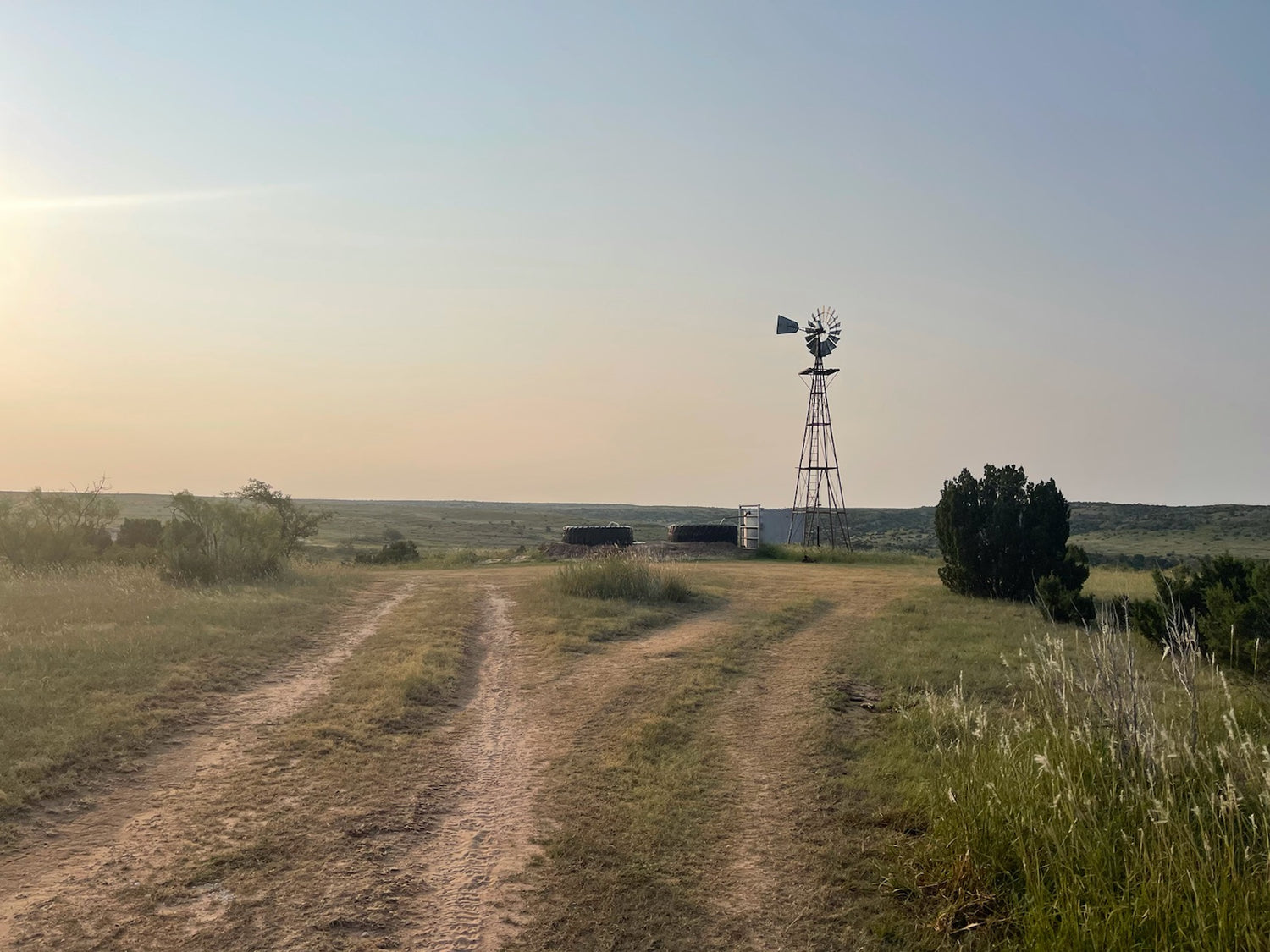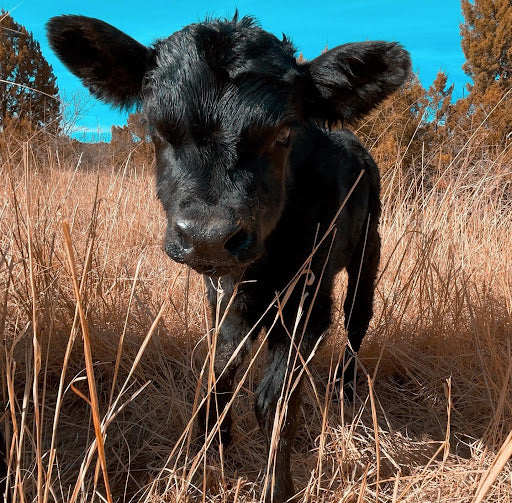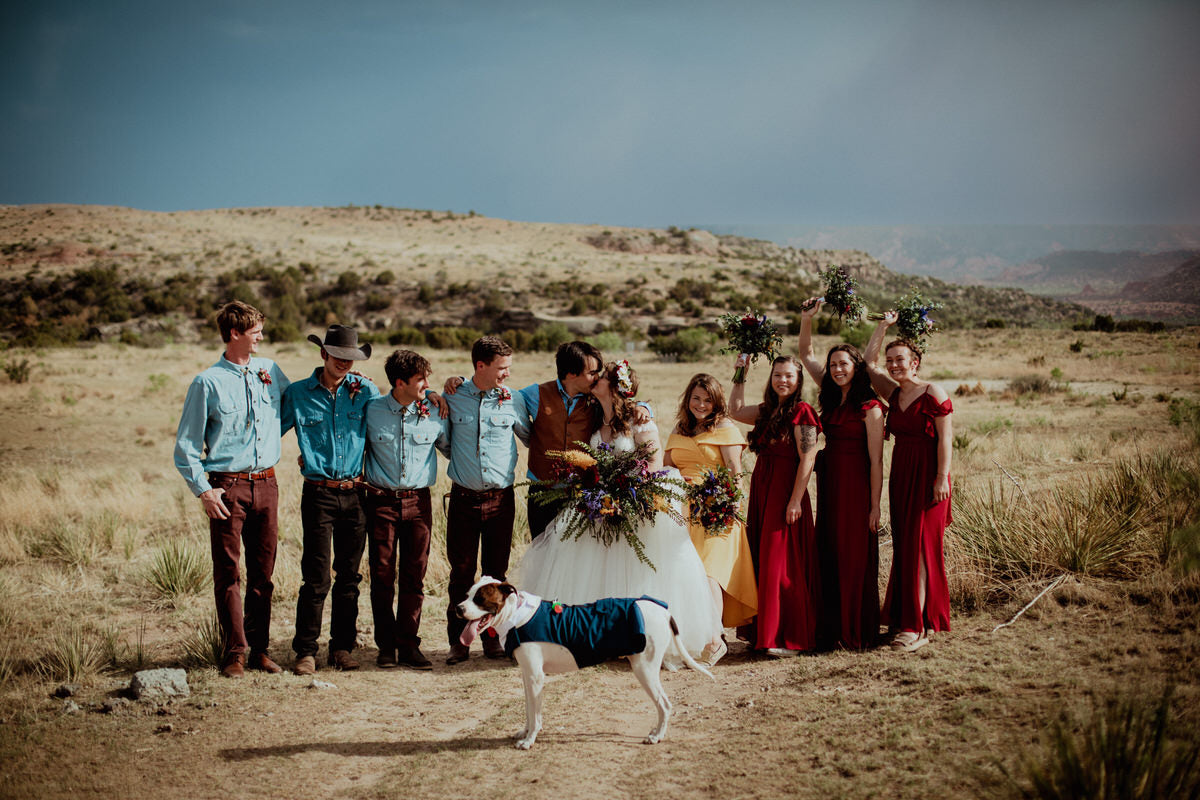Easy Breezy
Water, weddings, and whale size steaks
If you read the year's first newsletter, you read about our grain elevator. There was some insight into how technology is a large part of ranching and how it affects day-to-day operations. I wanted to give our readers more insights into a specific ranching technology and its history in this newsletter. The technology of the late 19th century enabled folks to access the great plains in the panhandle of Texas. In fact, we still use some of these inventions to this very day. We also have some updates on an upcoming wedding at the ranch!
The Windmill

Imagine you're a settler coming west of the Mississippi for the first time. You're looking for new land to settle and graze your cattle. You're traveling the countryside when all of a sudden, jackpot! The great plains of the Texas Panhandle. Lush grass, belly high on a horse as far as the eye can see. Enough grass that you could easily feed a herd twice the size of the one you currently have back in Alabama. You jump off your horse, pick a blade of grass, and stick it between your teeth. You're about to slap your chaps, yell "yee-haw!", and break into a hoedown when you realize something. Where's the water? You jump on your horse and start riding again. It's sometime before you come to a natural water source and dagnabbit; there's already a man settled there with his herd. Your heart sinks. Even with thousands and thousands of acres of grass, there was very little water. However, what you don't realize is that you're wrong. Right below your feet lies all the answers to all your problems.
The Ogallala Aquifer is the largest in North America. It runs from Canada to Texas, covering some 112 million acres. The freshwater below the settler's feet is not a body of water. The aquifer is more like a sponge retaining excess water from rainfall, and this sponge had been sitting around for millennia, untapped.
The settlers knew about this water. Wells have been around since pretty much the beginning of time. You bible readers probably have heard about Abraham, Issac, and Jacob digging a few wells. However, the issue with wells in the late 19th century was that they were not efficient enough. Watering the large herds of a growing country was a significantly more challenging task than watering those of the old testament. It made more sense to keep larger herds East of the Mississippi, where water was abundant.
With a sunken heart, you look around at the lush grass. It was all simply too good to pass up. Regardless of the dismal water situation and the fact that the land around the natural water sources has been purchased, you buy some land. You settle and bring your herd and family to the great plains. In a divisive scheme, you let your cattle free on the land. You know that the cattle will naturally travel to the water on your neighbor's land. They will illegally drink his water.
Knowing what you're doing, your neighbor deploys a new technology, barbed wire. Finally, he can mark his land and prevent your cattle from drinking his water. It's an impending doom for you. Your livelihood depends on your cattle drinking. In desperation, you cut the barbed wire and let your herd onto our neighbor's land once more. Your neighbor retaliates with force with no one to enforce laws and no town nearby with a sheriff. The range wars of the 1880s begin. An udder and an absolute nightmare for the prospering young country of America.
It was an old technology that would end the range wars and enable the entirety of the plains to be inhabited by settlers. It was the perfect and reinvented windmill that could finally pull the water of the Ogallala Aquifer up to the surface. Finally, herds in large numbers could drink as much as they needed and graze the plains' grasses. Eventually, you didn't need your neighbor's natural water source. It was an absolute revolution for the panhandle.
The Harrell ranch was fortunate enough not to be a part of the range wars. Our ranch was founded in 1917, and by then, the windmill was close to perfection. It was actually the windmill that enabled the land to be settled and our ranch to form. The large metal structures use the wind to turn a pump which brings water to the surface and fills tanks for the cattle to drink out of. They provide thousands of gallons of water a year, and thanks to an abundant amount of wind, we never run out of water. A newcomer may find all the wind a bother, but it is nothing but a blessing to ranchers.
Windmills are usually a tool to accomplish the nitty-gritty task of providing drinking water to both man and beast, but they also can spark some recreational activity. A few years ago, Mary (recreational activities and dog walker chief of operations executive) spotted some large tires used for quarry equipment being sold. These tires were massive, and in her mind, she saw a couple of swimming pools. So with some southern engineering, the tires were cut in half and put next to a water storage tank. Filling up the tank is our friend, the windmill. When the storage tank overflows, the excess water is spilled into the pools. We call the pools the ool's because we want no pee in them.


Regardless if it's for fun or for the necessity of providing drinking water, the windmill is an intricate part of society for the panhandle. Its perfetted design makes it more valuable than any well and more efficient than any gas-powered pump. Without it being around, there would be almost no chance of civilization being able to inhabit the panhandle.
A Wedding at the Ranch

One of the most exciting things happening on the Harrell ranch this month is preparing for Connor’s and Helen’s wedding. The two will be celebrating their marriage this May with dancing, ranch activities, and premium beef. We all are bursting with excitement as the big day approaches. We also are busy and running around like crazy preparing.
The ranch benefits through the preparation of the wedding by receiving a bit of a facelift. 1) The house is receiving a new coat of paint on all its trim. This chore has been on the list for some time, and with the ceremony taking place right at the ranch house, there has been no better time to check it off. 2) With the ceremony being at the ranch home, it was time for Mary to fulfill a lifelong dream of hers: to cement her front yard. Yup, she doesn’t even need to water or mow it! The new patio has become the spot for the ceremony to take place. We all are very excited about this. 3) Cleaning the barn. The barn has become our plan b option if the weather doesn’t behave. It has proved to be a massive task for all of those involved, and we need to put a special thank you out to Sam, Mary, Faith, and Aaron for taking their free time to clean it for all of us.
Stay tuned for pictures and stories all about the big day!
Tritails
Tritails has continued its streak of high sales and outstanding customer satisfaction. This month we were able to put back in stock our tomahawk cut. Helen, Sam, Mary, and I had the privilege of trying one of these ginormous steaks out. Out of all honesty, it may now be my favorite cut. It was incredibly tender and delicious. The unique part is how the flavors and tenderness are met with enormous portion sizes. All four of us were fed with plenty of leftovers. This cut is perfect for large gatherings such as graduation or other parties. Man, it will feed and impress all!

Prayer Requests
You can feel free to disregard this part of the newsletter, but we always need prayers. Please do not think we are asking you to only pray for us but rather just add these things to the things you already pray for. We really appreciate and believe in this.
- A continuation of blessings, especially rain.
- Great weather for the wedding.
(PS. Oakley, the Great Pyrenees, that broke her leg is doing well. She is starting to heal and even has her cast off and goes on walks! PTL–Praise the Lord!)
Thank You so much, and don’t hesitate to let us know if we can pray for you.




1 comment
Ric
Congratulations U’all. Best wishes.
Leave a comment
All comments are moderated before being published.
This site is protected by hCaptcha and the hCaptcha Privacy Policy and Terms of Service apply.